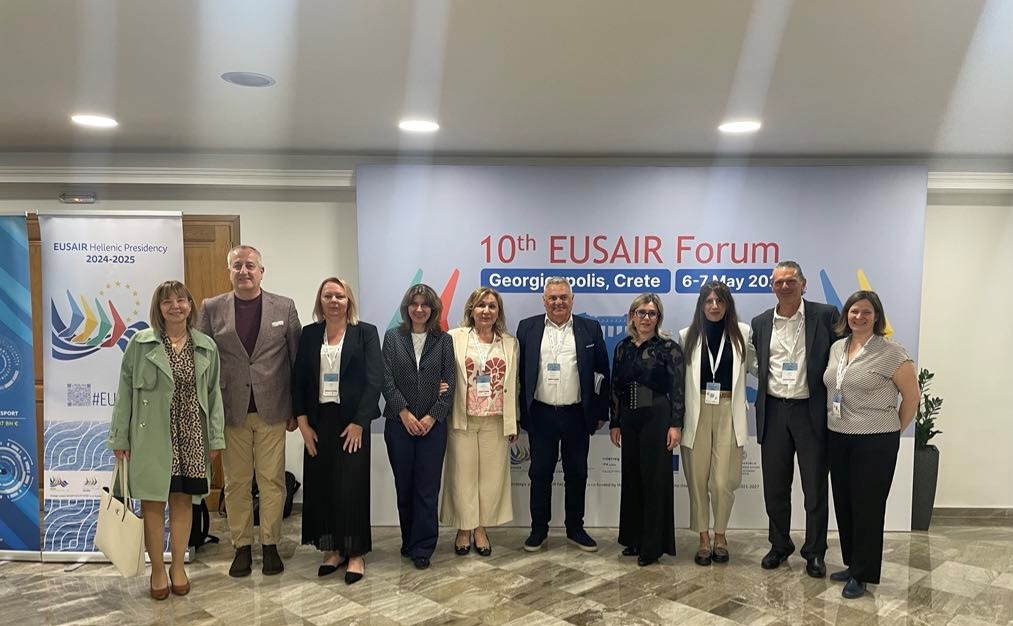The Mediterranean Diet is becoming a blueprint for sustainable living and cultural revival across Europe. At the heart of the Adriatic-Ionian Region, a bold new initiative by EU Strategy for Adriatic and Ionian (EUSAIR) is fusing gastronomy, heritage, and tourism to nourish communities, protect biodiversity, and empower rural economies.
Mediterranean Diet - more than just a way of eating. EU Strategy for Adriatic and Ionian Vision for 2030
- 12 May 2025

Among the most forward-looking sessions of the 10th Annual Forum of the EU Strategy for Adriatic and Ionian Strategy was the workshop titled “Mediterranean Diet and Cultural Tourism as a Tool for Local Sustainable Development,” organized on 7 May 2025.
The event brought together key stakeholders from the European Commission and the representatives of ministries of culture, agriculture, and tourism from 10 Southeast European countries participating in the Strategy united by a shared mission: to harness the power of cultural heritage and gastronomy for a more sustainable and inclusive future.
The Mediterranean Diet: More Than a Meal
The Mediterranean Diet is not just a culinary tradition—it’s a centuries-old way of life recognized by UNESCO as an Intangible Cultural Heritage of Humanity and endorsed by the FAO as one of the most sustainable diets globally. With its foundation in biodiversity, seasonality, organic farming, local and origin-labelled products and cultural traditions, the Mediterranean Diet represents a model for healthy living and environmentally conscious consumption.
It fosters eco-agriculture, protects biodiversity, and embodies the EU’s "Farm to Fork Strategy" for sustainable food systems. As highlighted in the workshop, it also holds untapped potential as a driver of sustainable tourism, interlinking culinary experiences with cultural discovery and environmental stewardship.
EUSAIR’s Revised Action Plan: A Turning Point
The EUSAIR Revised Action Plan represents a strategic evolution, integrating cross-cutting themes such as green rural development, circular economy, digitalization, and social inclusion.
Within Pillar 4: Sustainable Tourism, the Mediterranean Diet is a Strategic Flagship Project. Scheduled for development by the end of 2025, this project aims to:
- Promote local, organic, and geographical indication food products
- Encourage sustainable rural and agritourism
- Protect cultural landscapes and biodiversity
- Incentivize eco-tourism over mass coastal tourism
- Create multi-stakeholder networks including farmers, cultural operators, and tourism businesses
These objectives align with the EU Green Deal, 2030 Agenda for Sustainable Development, and the European Strategy for Sustainable Tourism, due in 2026.
From Strategy to Action
The revised action plan emphasizes incorporating the Mediterranean Diet into the region’s tourism offers. With 72 UNESCO World Heritage Sites and 44 Intangible Cultural Heritage elements, the Adriatic-Ionian region holds a unique position Through financial support from EU programs such as Interreg Adrion, communities can elevate traditional foodways into competitive, sustainable tourism assets. Moreover, innovative governance models such as living labs, thematic platforms, and open innovation hubs are set to bridge the gap between tourism operators and agri-food stakeholders, fostering holistic rural development and knowledge exchange.
Ultimately, this initiative positions the Mediterranean Diet not just as a dietary choice but as a catalyst for sustainable transformation, linking health, environmental protection, economic resilience, and cultural preservation.
As Europe prepares its 2026 Sustainable Tourism Strategy, the Adriatic-Ionian Region, through EUSAIR, offers a replicable model: one where eating well, preserving heritage, and sustaining nature go hand in hand.
